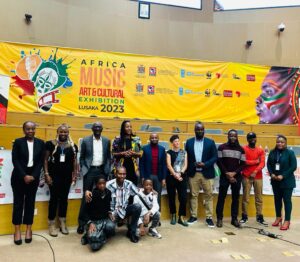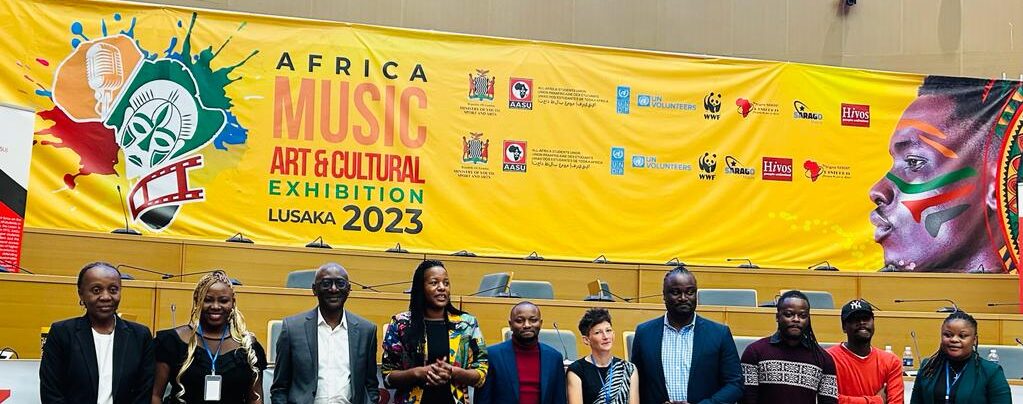AMACE23: inspiration and provocation from the Arts in Africa
07/07/2023
Reflections from Meg Baker, Managing Director, SOS-International.
It was an honor to attend the All-Africa Student Union’s Art Music and Cultural Event 2023 in Zambia, at the end of June, as a delegate and speaker. The event was hosted by the Government of the Republic of Zambia under the Ministry of Youth, Sport and Arts, with delegates and speakers from civil society, government, student unions and organisations and the creative arts. With the All-Africa Student Union recently appointed presidency position for Students Organising for Sustainability-International (SOS-International) it was a great opportunity to build this partnership and begin our journey in exploring how we can ensure SOS-International is representative and works inclusively with those most affected but least responsible for the climate and ecological crises.
The four-day conference in Lusaka provided a platform showcasing the incredible breadth richness, and vibrance of art music and culture in Africa. Over 2000 delegates from over 50 countries came together exploring critical conversations on the importance of investing in the creative sector to harness youth talent and contributions.

I spoke on a session focused on ‘Using art to inspire climate action’, it was a privilege to stand alongside artists and creatives truly delivering on the theme of the session through their work. We also heard provocations from WWF Zambia, Wildlife Environment Conservation Society Zambia and The Zambia Climate Change Network on how rural young people are using art messages to raise awareness of climate change and their vision for a better future. The inspirational showcase included computer game creators, singer-songwriters, comic artists, visual artists and more. The importance of bringing all of society together on the journey to understanding the climate and ecological crises, and finding solutions couldn’t have been made clearer. We cannot count on science and the language of science alone to do this, therefore climate action needs to be both intersectional and interdisciplinary if we are to deliver climate and ecological justice. The arts and creative sector have a great deal to contribute in terms of imagining and visualizing solutions, as well as helping engage wider-society in understanding this vast challenge we need to work collectively on.
“Mobilizing communities and allowing them to use culture, art and music to inspire action towards addressing the urgent challenges of climate change should be done inclusively and at all levels.” – WWF Zambia
A resounding theme being reiterated throughout the course of the conference and across a breadth of contexts was the challenges related to lack of funding and prioritization of the arts and arts education. This is a challenge similarly felt across other regions of the world, for example in the UK in 2021, government funding for higher education arts courses was cut by nearly 50%.
The conference closed with statements and aspirations of optimism, with a formal declaration presented as a call for action to better invest in the arts and culture through policy related to cultural preservation, fair funding and investment, inclusion, education, and recognition of the role of the arts in awareness raising and fostering positive action for climate.
For me personally, it’s left me feeling hopefully and energised for working collectively across our cultures and sectors to create a path for climate justice which harnesses the unique contributions we can all make to this planet. We all have a role to play, as individuals, as organisations and as communities. Whilst the greatest change needs to be system change, we are all actors with the potential to contribute to a better future for all.
Huge gratitude goes to those who worked hard behind the scenes to make this event the amazing success that it was, particularly to Secretary General of All-Africa Student Union, Peter Kwasi Kodjie.

